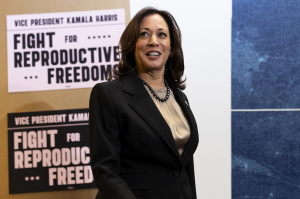Social media is hurting kids, but a fix may be on horizon

The Big Tech problem is a moral crisis first. As Heritage Foundation President Kevin Roberts wrote last month:
Big Tech is the enemy of the people not merely because they have taken advantage of our free-market principles. They have earned this untoward distinction because of what Big Tech does to us in our relationships with one another as human persons.
While Big Tech menaces many levels of society, how it is impacting the next generation of citizens is of particular consequence.
Social media’s deleterious effects on teens and preteens the world over are well known by now. In April, The Atlantic cited social media as a major factor in rising rates of depression in American youth. A March study by Cambridge University revealed a direct relationship between social media use and life satisfaction in adolescence.
It found that for certain age groups, “higher estimated social media use predicts a decrease in life satisfaction ratings … and … lower estimated social media use predicts an increase in life satisfaction ratings.”
Facebook’s own research allowed that 6% of teen Instagram users who reported suicidal thoughts traced these feelings directly to Instagram. The platform was responsible for body image issues in teen girls, as well.
In another study, a team composed of university researchers Jean M. Twenge, Jonathan Haidt, and others found a “consistent and substantial association between mental health and social media use” among girls — an association stronger than links between their mental health and hard drug use, sexual assault, obesity, and binge drinking.
The Heritage Foundation has captured this and similar research throughout 2021, and offered our own solutions to contend with its findings.
Big Tech companies are aware of the effect they have on young people and yet continue to forge ahead and even expand their efforts. Mental health aside, these companies poison American youth with content that warps their perceptions of reality and even impairs the development of their consciences.
Big Tech companies build addictive properties, now aimed deliberately at children, directly into the design of their products. With the race to court, the next generation growing more competitive, no doubt they will enhance these properties for a “valuable but untapped” preteen audience.
We can see the effects with our own eyes. The erosion of character, increasing atomization, and difficulty forming genuine relationships in real life among today’s children are enough to stunt a nation going forward. Children and adolescents in our cities walk around like zombies, ride slack-jawed in backseats, and sit hunched over at dinner tables across the country glued to their phones and the ersatz connections they peddle.
But with these technologies so entrenched, what can be done?
Peggy Noonan suggests a solution: “When we know children are being harmed by something, why can’t the state help?” She remarks that one faction of conservatives maintains that its greater responsibility is not to simply maximize shareholder value for Big Tech companies but to “see to it that an entire generation of young people not be made shallow and mentally ill through addictive social media use.”
It follows that legislation has a role to play. To that end, two senators have stepped into the breach.
Sens. Marsha Blackburn, R-Tenn., and Richard Blumenthal, D-Conn., introduced the Kids Online Safety Act. This bill attempts to address and mitigate future fallout from Big Tech’s reckless push for growth at the expense of America’s kids. This policy proposal aligns with The Heritage Foundation’s recommendations for companies to expand and strengthen parental controls and protections for minors. (The Daily Signal is the news outlet of The Heritage Foundation.)
Additionally, the bill creates provisions for platform accountability and transparency in order to safeguard children and teens online. As such, the Kids Online Safety Act could go a long way in addressing the areas where Congress’ 1998 effort, the Children’s Online Privacy Protection Act, falls short. In addition, it provides recourse for kids and parents against companies that have become more aggressive in targeting younger and younger audiences.
The bill fills a vacuum in three key areas: platform accountability, transparency, and user empowerment in the form of parental controls. To ensure accountability, the legislation requires companies to institute independent, third-party audit and compliance requirements through state attorneys general where none currently exist, especially with regard to systemic risk to minors.
Two of its provisions — one for detailed public reports on areas like breaches of parental tools and another requiring limited access to datasets on the impact of these platforms’ practices on minors — are foundational transparency efforts in this arena.
In terms of user control, the Kids Online Safety Act’s emphasis on platform-generated controls allows for additional user empowerment. A common theme in Heritage Foundation analysis, this linchpin of the bill provides a framework for digital platforms to follow when designing products used by children. In addition, it would help institute necessary technical safeguards that include privacy by design, opt-in features, and stringent default settings.
A recourse mechanism for parents who identify harm to their children caused by these platforms — which could also provide the basis for additional public reporting and transparency — would help rebalance the relationship between users and platforms.
As with a number of the Big Tech bills circulating on the Hill, the Kids Online Safety Act itself cannot solve every problem. For instance, the use of the word “harm,” if not tightly defined, could potentially be used as a cudgel against conservative speech. But when it comes to tech policy, this proposal embodies policymakers’ hard-won intuition that a scalpel over a sledgehammer is more efficacious.
None of these bills will solve these issues in and of themselves. Instead, proposals like the Kids Online Safety Act serve as the initial salvo upon which to layer additional legislative efforts. This policy change, when coupled with efforts like a 2022 bill focused on child sexual exploitation online and updates to the Children’s Online Privacy Protection Act, would bring Congress one step closer to truly tackling online safety for minors.
And once obvious constraints are placed on the reckless drafting of children into the digital maw, we can then start rebuilding the moral fabric of our nation — one young citizen at a time.
Originally published at The Daily Signal.
Kara Frederick is a research fellow with the Center for Technology Policy at The Heritage Foundation.




























